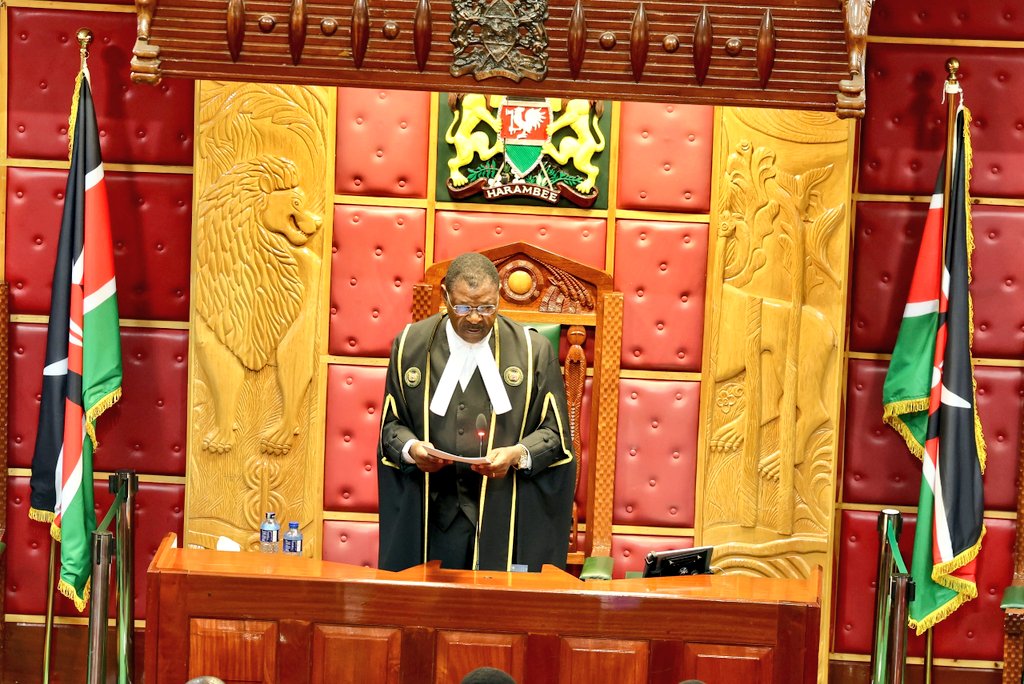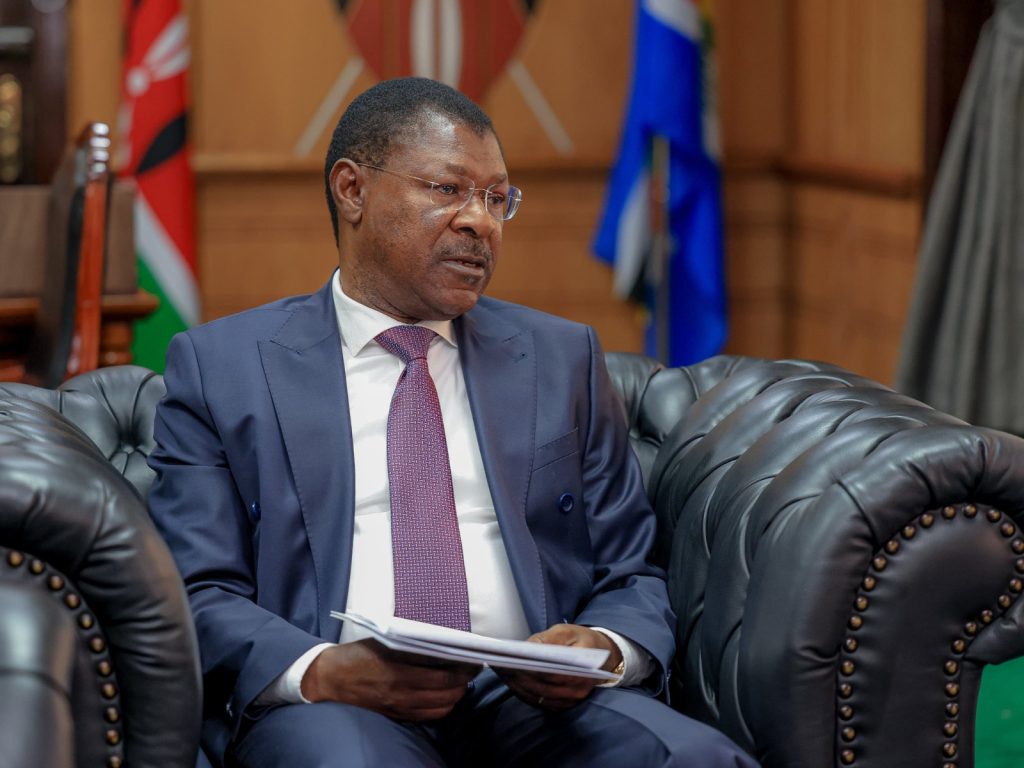Draft Finance Bill 2025 and budget estimates for the financial year 2025/2026 have been transmitted to the National Assembly.
This was confirmed by Speaker Moses Masika Wetang’ula during the Wednesday, April 30, 2025, session. The draft Finance Bill 2025, which received approval from the cabinet, contains revenue-raising measures for the next financial year.
While confirming its submission to parliament, Wetang’ula announced that it will be committed to the Departmental Committee on Finance and Planning for consideration.
According to the speaker, the public will be allowed to give their views upon first reading and publication.

“I also wish to inform the House that I have received the draft Finance Bill 2025 from the Cabinet, which relates to the revenue-raising measures for the budget submitted,” Wetang’ula stated.
“It will be committed to the Departmental Committee on Finance and Planning for consideration and public participation upon publication and first reading,” he added.
This came after the cabinet approved the Finance Bill, 2025, in a move it says is aimed at tightening Kenya’s fiscal belt while sparking reforms across the taxation landscape.
A Cabinet despatch sent to newsrooms on Tuesday, April 29, 2025, stated the Bill “focuses primarily on closing loopholes and enhancing efficiency, including addressing loopholes related to tax expenditures that have historically been exploited to siphon funds from public coffers, such as through inflated tax refund claims.”
Budget estimates
At the same time, Wetang’ula indicated that the budget estimates for the financial year 2025/26 had been transmitted to the House for consideration.
Once approved, the estimates would form the basis for the Annual Appropriation Act.
Before being approved, Wetang’ula noted that respective committees will engage with relevant stakeholders, the National Treasury, and to the public before being recommended to the House.

“Honourable members, I have a short communication guidance on the consideration of budget estimates for financial year 2025/26. Article 221 of the Constitution, as read together with section 39 with the Public Management Act 2012, requires the National Assembly to consider the estimates of revenue and expenditure of the National Government, Parliament, and the Judiciary for each financial year. These estimates, once approved by the National Assembly form the basis for the annual Appropriation Act,” Wetang’ula stated.
“Honourable members, as you may be aware the estimates have since been submitted and tabled before the National Assembly as required by the law. Consequently and pursuant to the provisions of standing orders 235, the estimates now stand submitted to respective departmental committees and the Budget and Appropriations Committee for consideration,” he explained.
“The departmental committees are required to engage with the relevant stakeholders to ensure the participation of all players in the process. It should be noted that the Budget and Appropriation Committee is required to discuss and review the budget estimates make recommendations to the House taking into account the recommendations from the departmental committees, the views of Cabinet Secretary of the National Treasury and the General Public,” he further informed the House.